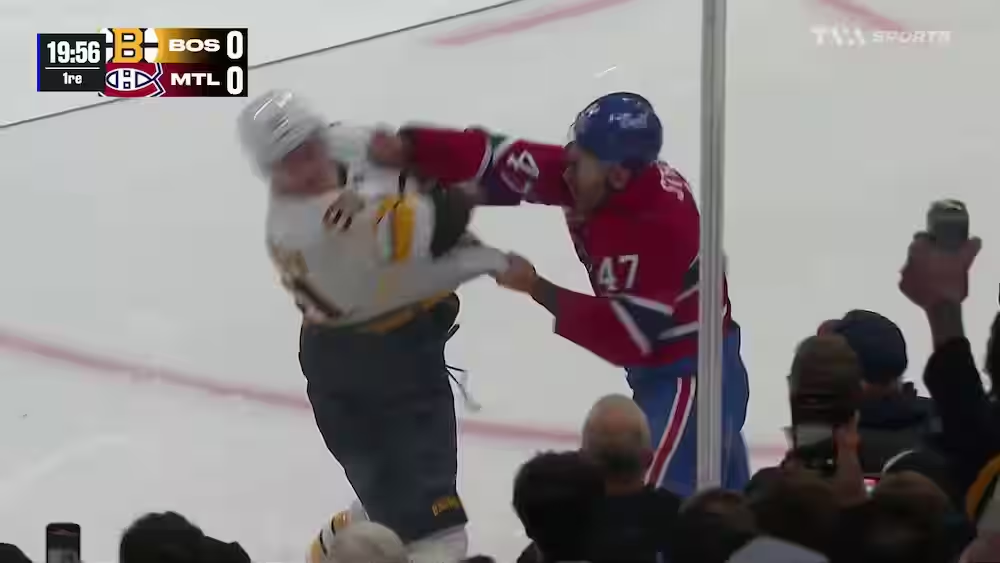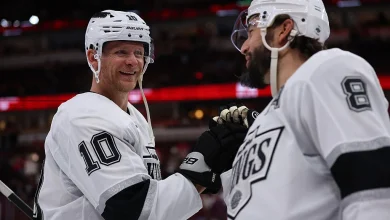Game No. 9 Preview: Flyers vs. Penguins

There’s no such thing as a quiet Philadelphia Flyers–Pittsburgh Penguins game.
Even when the standings say otherwise, even when it’s just another date on the schedule, there’s something in the air when these two meet — a low, electric hum that stretches back decades.
The Flyers, under Rick Tocchet’s increasingly defined system, are not a novelty act anymore. They’re not just scrappy or hardworking — they’re a team with structure, an identity, and a growing sense of conviction.
And as they prepare for their first meeting with Pittsburgh this season, they’re doing it from a place of belief, not bluster.
A team that bends but refuses to break
If you’ve been watching the Flyers lately, you know their home ice has turned into something close to sacred ground.
They’ve carved out a solid early-season record there, including that recent shootout win against the Islanders — a game that felt like it could’ve tilted either way but ultimately showcased what’s been defining their year so far: resilience.
They’re not always dominating teams for 60 straight minutes. Few in the league do. But they keep coming back. They chip, chase, hound, and grind, often leaning on a collective work ethic that outpaces their raw scoring touch. It’s not always pretty, but it’s honest hockey — and right now, it’s working.
Tocchet’s Flyers are hard to play against, disciplined in structure, and utterly committed to staying in the fight, no matter how long it takes.
The system is sticking — but there’s work to do
Still, Tocchet would be the first to tell you there’s plenty left to refine. For one, the Flyers still need to generate more consistent offensive pressure.
They have players who can create — Travis Konecny, Owen Tippett, Tyson Foerster — but the next step is getting more of them to execute completely. Too often, sequences die on the stick because someone’s looking for the extra pass instead of simply putting the puck on net and trusting chaos to do the rest.
It’s not about becoming reckless — Tocchet’s entire system is built on responsible aggression, and a heavy accumulation of penalties early in the season was cause for concern by the head coach — but the Flyers could use a touch more selfishness.
When this team leans into its tempo, when pucks start flying from all angles and rebounds are being hunted like loose change, they look dangerous. It’s that instinct, that killer edge, that separates a good possession team (which Tocchet has iterated multiple times he wants them to be) from a team that buries opponents.
Defensively, the Flyers have been largely composed but occasionally porous in key moments — the kind that test not just coverage, but confidence. A few of their recent third-period sequences have shown that while they’re well-drilled in their zone, tightening those small breakdowns — the late switches, the slow box collapses, the missed clears — will be crucial if they want to protect leads instead of surviving them.
The goaltending balance
The goaltending picture remains a storyline worth watching, though not necessarily a cause for concern.
Sam Ersson has earned trust with his poise and rebound control, while Dan Vladar has impressed in his starts with an admirable blend of diving highlight-reel saves and steady, consistent net minding. Tocchet seems intent on maintaining a true tandem, and for good reason — the modern NHL demands it.
The challenge will be finding the right balance. Ersson’s steadiness gives the Flyers a calming presence, but Vladar’s athleticism brings something different — unpredictability that can both save games and make them tense.
Over time, the goal is for both to feed off each other, creating an internal push that sharpens the crease rather than divides it. Tocchet’s approach here feels pragmatic: ride the hot hand, yes, but don’t overwork it.
Enter the Penguins
And then there’s Pittsburgh — still loud, still loaded, still trying to squeeze one more run out of the mega-experienced core while folding in younger legs around them.
Lately, they’ve been red-hot, winning with speed and precision that looks more like their prime years than their transitional ones. Their power play, which is currently ranked second in the NHL, has started to click again. Their confidence is back.
But the Flyers like playing teams like that. There’s something about facing a team that expects to dictate pace that brings out the best in Philadelphia. Tocchet’s system thrives on disruption — on dragging free-flowing offenses into trench warfare and daring them to play a different kind of game. If the Penguins want to open it up, the Flyers will gladly turn it into a street fight.
This rivalry has always been about contrast. Pittsburgh’s flash versus Philadelphia’s grit. One side prefers to dance; the other would rather drag you into the boards and triple-dog-dare you to keep up. This iteration of the Flyers, though, adds something more nuanced — the ability to toggle between both. They can skate, they can counter, and they’re learning how to strike when the game opens up.
Projected Lines
Philadelphia Flyers
Forwards:
Owen Tippett – Sean Couturier – Travis Konecny
Tyson Foerster – Noah Cates – Bobby Brink
Trevor Zegras – Christian Dvorak – Matvei Michkov
Nic Deslauriers – Rodrigo Abols – Garnet Hathaway
Defense:
Cam York – Travis Sanheim
Nick Seeler – Jamie Drysdale
Egor Zamula – Noah Juulsen
Goalies:
Sam Ersson
Dan Vladar
Pittsburgh Penguins
Forwards:
Filip Hallander – Sidney Crosby – Bryan Rust
Anthony Mantha – Evgeni Malkin – Justin Brazeau
Tommy Novak – Ben Kindel – Ville Koivunen
Connor Dewar – Blake Lizotte – Noel Acciari
Defense:
Parker Wotherspoon – Erik Karlsson
Ryan Shea – Kris Letang
Matt Dumba – Harrison Brunicke
Goalies:
Arturs Silovs
Tristan Jarry





